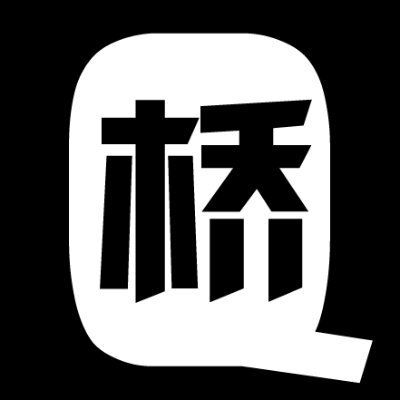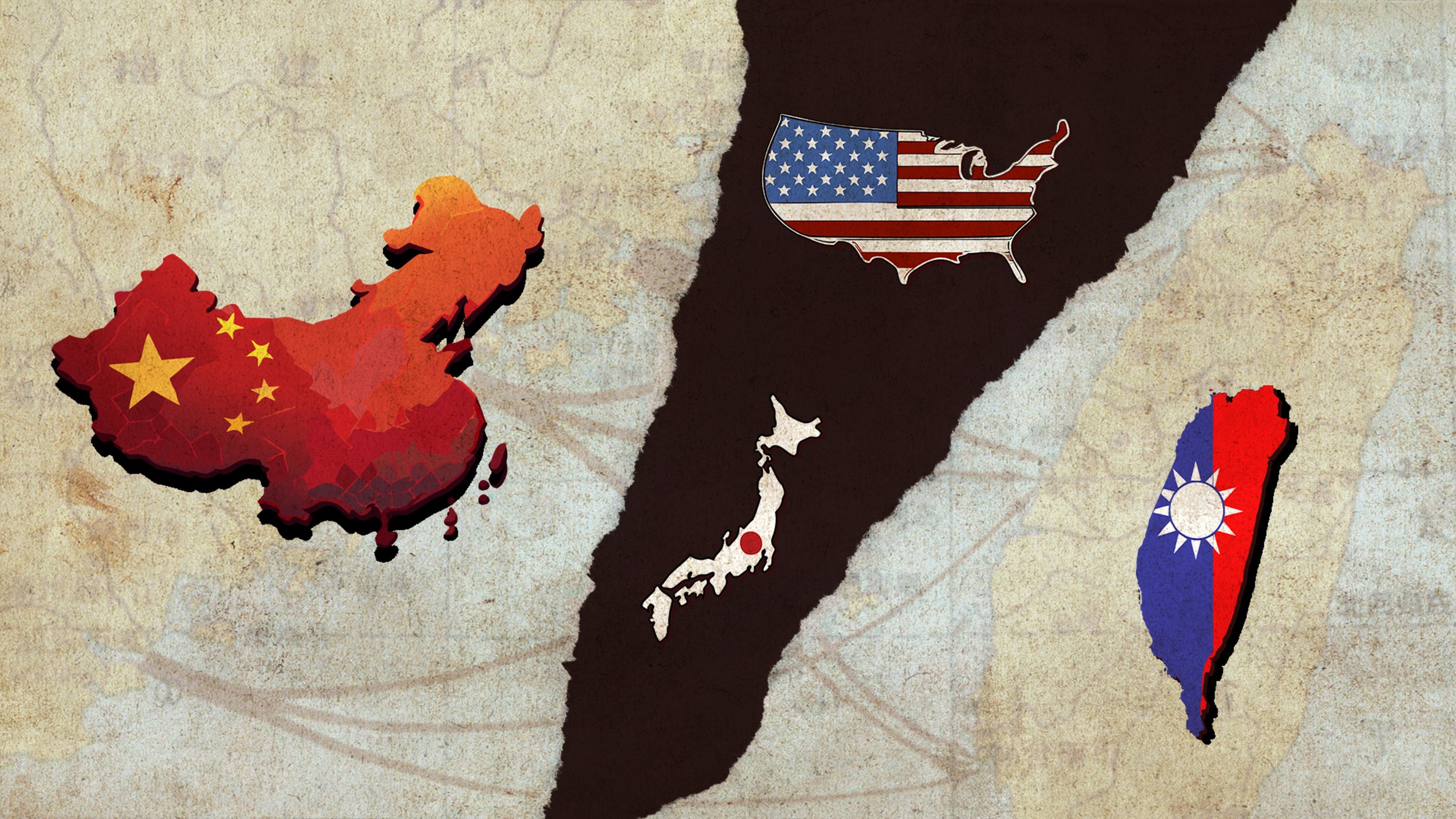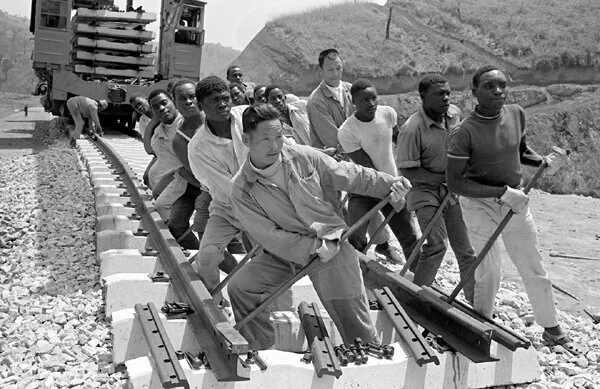Taiwan: An Anti-Imperialist Resource
As Taiwan makes headlines as a flashpoint for US aggression on China, this resource unpacks China’s aspirations for national reunification and Taiwan’s fraught status as an “unsinkable aircraft carrier” for Western ideological, economic, and military power in Asia and the Pacific.
Socialism with Chinese Characteristics—Introductory Study Guide
China has transformed in 70 years from a poor, underdeveloped country mired by feudalism and imperialism into a sovereign socialist society and the world’s second-largest economy.
This resource list provides a starting point for understanding China’s rapid development through a close examination of Chinese socialist theory and governance.
Chinese Solidarity with Latin America
Amidst growing imperialist anxiety over Chinese presence in Latin America — Washington’s so-called “backyard” — this panel explores Latin American perspective on Chinese internationalism in the region. Far from another imperial power aiming to subordinate Latin American countries to its own interests, China’s presence in the region presents opportunities to pursue economic development without having to submit to neoliberal imperial preferences. Organized with ANTICONQUISTA and the Geopolitical Economy Research Group, this panel discussed progressive movements and governments in Latin America and their relationship with China.
From Hybrid to Hot War: U.S. Militarization and the Pacific Under the New Cold War on China
This panel focuses on the U.S. militarization of Asia and the Pacific under the auspices of the renewed U.S. “containment” doctrine and the new Cold War on China. Panelists analyzed how the U.S. deploys false claims of a “China threat” narrative to justify the further entrenchment of its own militarization of regions in Asia and the Pacific. We will highlight how renewed U.S. Cold War aggression on China is further expanding the U.S. militarization and occupation of regions in Asia in the Pacific such as Korea, Hawai’i, Guam, Okinawa, and beyond.
Video Lecture: Is China Imperialist? On Chinese Internationalism and Anti-Imperialism
Watch Qiao Collective’s 90-minute class addressing the oft-raised question: is China imperialist? Short answer: no. Watch our class providing an overview of Chinese internationalism and addressing common controversial topics including: Hong Kong, Taiwan, South China Sea, and Xinjiang.
Roundup: What Does It Mean to Eradicate Absolute Poverty?
China’s historic campaign to eradicate absolute poverty by 2020 has been met with claims of exaggeration and even state repression in Western media.
This short resource roundup sheds light on China’s criteria for “absolute poverty,” down to the county and even household level, with further readings on what poverty alleviation looks like on the ground.
Xinjiang: A Report and Resource Compilation
Based on a handful of think tank reports and witness testimonies, Western governments have levied false allegations of genocide and slavery in Xinjiang Uyghur Autonomous Region. A closer look makes clear that the politicization of China’s anti-terrorism policies in Xinjiang is another front of the U.S.-led hybrid war on China.
Challenging US imperialism with Chinese multilateralism
The first public online meeting of the No Cold War campaign took place on Saturday 25 July 2020, with speakers from eight countries - the US, China, Britain, India, Russia, Canada, Venezuela and Brazil - speaking out against the rising tide of aggression and hostility directed against China by the US and its allies.
Video Lecture: Is China Capitalist? On Chinese Socialism
Watch Qiao Collective’s 90-minute class, which provides an overview of the basics of China’s socialist market economy. The class aims to answer myths and FAQs such as “Is China capitalist/socialist,” outlining the principles and evolution of socialism with Chinese characteristics.
Tiananmen Protests Reading List
More than thirty years later, the Tiananmen Square protests of 1989 remain a touchstone of a Western mythology spun to challenge the fundamental legitimacy of the Communist Party of China.
This reading list compiles primary sources, Chinese state documents, and media fact-checking reports to challenge the hegemonic narrative of the Tiananmen protests.
Friday Night Forums 6: US and China Relations w/ Kevin Li, Amanda Yee & Alex Tom
The Red Nation in partnership with the Arab Resource & Organizing Center (AROC) and the Center for Political Education is hosting a series of critical conversations on settler colonialism, US imperialism, and decolonization. The COVID-19 pandemic is global, and so our response to it must also be global. Friday Night Forums feature anti-imperialist perspectives and lessons on organizing from around the world, with an eye toward decolonizing Turtle Island.
Empire is the Virus: Iran, Cuba, Vietnam, & China's COVID-19 Fight Amidst US Aggression
The COVID-19 crisis has thrown into stark relief the cruel geopolitics of U.S. imperialism. Yet the crisis has also modeled the power of Global South solidarity, powered by the socialist principles enabling countries such as China, Vietnam, and Cuba to provide pandemic aid to the world.
The People's Response To The Crisis: A Working Class, Internationalist Perspective
As the spread of COVID-19 exposes the dysfunction and illegitimacy of capitalist and imperialist system, we need to maintain an internationalist and working class analysis. This panel will bring together leaders, thinkers, and organizers in the struggle for the human right of healthcare, against xenophobia, and against imperialism to help us understand the COVID-19 crisis in the current moment.
Hong Kong Reading List
This reading list provides a critical lens on the Hong Kong protests and the British colonial nostalgia, anti-Chinese racism, and appeals to Western intervention that make up the dominant force of the protests.
Syllabus: China and Africa
This syllabus compiles articles, papers and books on China & Africa's relationship that challenge fear-mongering Western narratives on China's relationship with Africa and associated tropes of Chinese "neocolonialism" and “debt-trap diplomacy.”
















